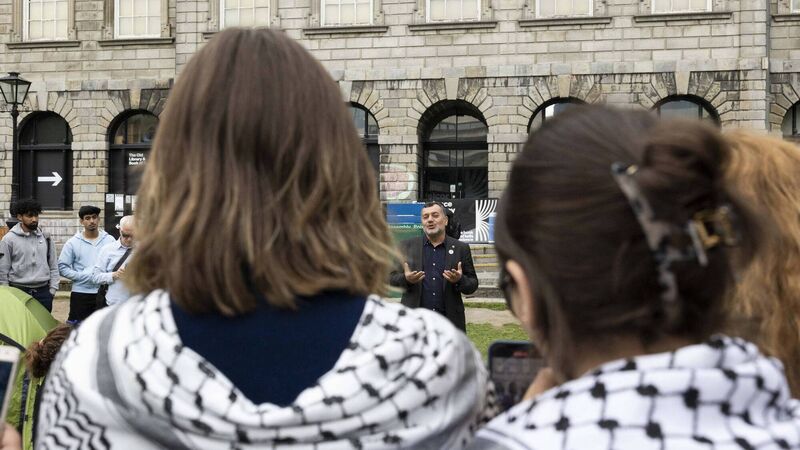Embassy criticises Trinity decision to divest from Israeli investments

Israeli Embassy in Ireland criticised Trinity College Dublin's decision to allow a 'small minority of students attempt to dictate university policy without regard to wider consequences'. Picture: Sam Boal/Collins Photos
The Israeli Embassy in Ireland has criticised Trinity College Dublin's decision to allow a "small minority of students attempt to dictate university policy without regard to wider consequences", after the university agreed to divest from Israeli investments.
The embassy also claimed pro-Palestinian protests on the grounds of the university were not "peaceful" but "extreme and obstructive" and an "attack" against everything Israeli.













